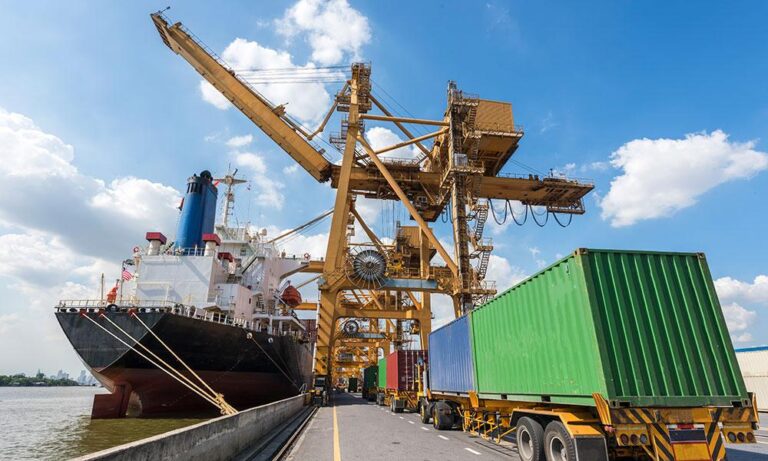Texas: A Global Trade Powerhouse Shaping Economic Prosperity
Texas’ Integral Role in International Commerce
Texas stands as a formidable force in the global economy, leveraging its abundant natural resources, prime geographic position, and multifaceted industries to drive extensive international trade. Recent statistics highlight the state’s heavy reliance on cross-border commerce, emphasizing Texas as a crucial conduit connecting U.S. markets with worldwide partners. In 2023, exports contributed nearly 15% of Texas’ gross domestic product (GDP), reflecting the indispensable influence of global trade on the state’s economic vitality.
Key sectors propelling Texas’ export strength include energy, technology, agriculture, and manufacturing. These industries benefit from strong trade alliances with nations across Latin America, Asia, and Europe, fostering economic growth and job creation throughout the state. Here’s a snapshot of Texas’ export landscape:
- Energy Sector: Texas dominates U.S. exports of crude oil and natural gas.
- Technology Industry: Rapid expansion in electronics and software exports.
- Agricultural Products: Leading exporter of cotton, cattle, and poultry.
- Top Trade Partners: Mexico, China, Canada, and Germany remain primary destinations.
| Export Sector | 2023 Export Revenue (Billion USD) | Primary Trade Partner |
|---|---|---|
| Energy | 85 | Mexico |
| Technology | 45 | China |
| Agriculture | 30 | Canada |
| Manufacturing | 40 | Germany |
Driving Forces Behind Texas’ Export Expansion
Texas holds a pivotal position in the U.S. export framework, with a broad spectrum of industries fueling its international trade momentum. The energy sector remains the backbone, with crude oil, natural gas, and refined petroleum products constituting a substantial portion of export earnings. Texas’ advantageous location along the Gulf Coast, coupled with its status as a production hub, facilitates access to global markets.
Complementing energy, the technology and manufacturing sectors showcase Texas’ innovative edge. The state excels in exporting semiconductor chips and aerospace components, reflecting its advanced industrial capabilities. Additionally, agriculture and chemical industries contribute significantly, with Texas exporting high-quality cotton, livestock, pharmaceuticals, and plastics to meet global demand.
| Industry | Main Export Products | 2023 Export Value (Billion USD) |
|---|---|---|
| Energy | Crude Oil, Refined Petroleum | 55 |
| Technology & Manufacturing | Semiconductors, Aerospace Parts | 30 |
| Agriculture | Cotton, Livestock | 12 |
| Chemicals | Pharmaceuticals, Plastics | 18 |
Obstacles and Prospects in Texas’ Global Trade Environment
While Texas thrives as a global trade hub, it faces several challenges that require strategic navigation. Disruptions in supply chains, tariff volatility, and complex regulatory landscapes create obstacles for exporters. Additionally, geopolitical uncertainties demand that Texas businesses remain flexible and responsive to evolving international policies. Infrastructure constraints, particularly at border crossings, also limit the efficient movement of goods.
Despite these challenges, Texas is uniquely positioned to capitalize on emerging opportunities. Its proximity to Mexico and access to Gulf Coast ports establish the state as a natural nexus for logistics and manufacturing. Expanding markets in Asia and Latin America offer promising avenues for export growth. Furthermore, advancements in customs technology and freight tracking systems present opportunities to enhance operational efficiency, reduce costs, and promote environmentally sustainable trade practices.
- Upgrading critical infrastructure at ports and border points
- Enhancing supply chain resilience through diversification
- Maximizing benefits from free trade agreements to broaden market access
- Implementing sustainable logistics solutions to reduce environmental impact
| Sector | Export Growth Rate (2023) | Leading International Partner |
|---|---|---|
| Energy | 8.4% | Mexico |
| Technology | 11.2% | China |
| Agriculture | 6.5% | Canada |
| Manufacturing | 9.8% | Germany |
Advancing Texas’ Competitive Edge in Global Trade
To sustain and enhance its global trade prominence, Texas must focus on modernizing infrastructure to expedite logistics and alleviate export-import delays. Expanding port capacities and developing intermodal transport systems will be critical in optimizing goods movement. Simultaneously, nurturing a vibrant technology ecosystem will empower businesses to harness data analytics and automation, boosting efficiency and adaptability to shifting international market demands.
Public-private partnerships are essential to diversify trade portfolios, enabling Texas to penetrate emerging markets while mitigating exposure to global economic fluctuations. Supporting small and medium-sized enterprises (SMEs) through export assistance programs and trade education will equip local businesses to compete on the world stage. Key strategic initiatives include:
- Streamlining trade processes: Simplify customs and enhance cross-border collaboration.
- Workforce enhancement: Develop training programs aligned with evolving industry requirements.
- Innovation incentives: Offer grants and tax benefits for research and development targeting export products.
| Initiative | Projected Outcome | Implementation Period |
|---|---|---|
| Port Infrastructure Modernization | Boost cargo handling capacity by 25% | 2024-2026 |
| SME Export Expansion Programs | Increase SME export participation by 15% | 2024-2025 |
| Trade Technology Development | Enhance operational efficiency by 20% | 2025-2027 |
Conclusion: Sustaining Texas’ Global Trade Leadership
Data clearly demonstrates that international trade is a cornerstone of Texas’ economic framework, underpinning employment, industry growth, and statewide prosperity. With its strategic geographic advantages and robust infrastructure, Texas continues to serve as a vital gateway for global commerce, reinforcing its indispensable role in both national and international markets. Moving forward, a deep understanding of trade dynamics and proactive strategies will be essential for policymakers, businesses, and communities committed to expanding Texas’ economic success on the world stage.




